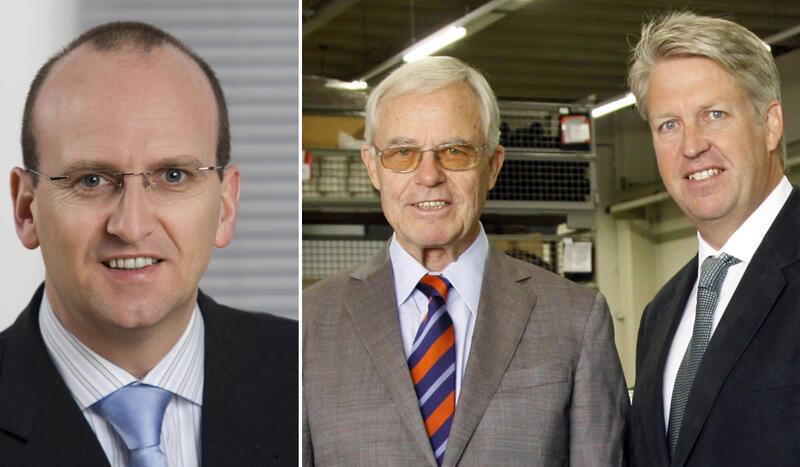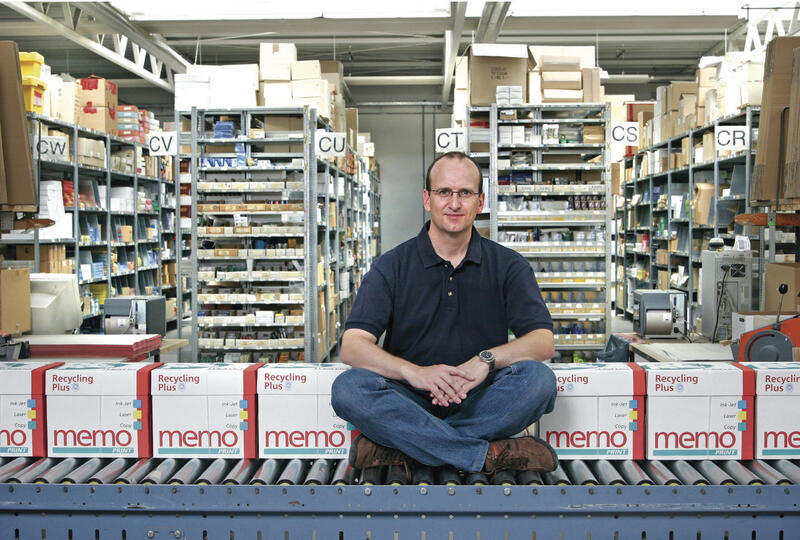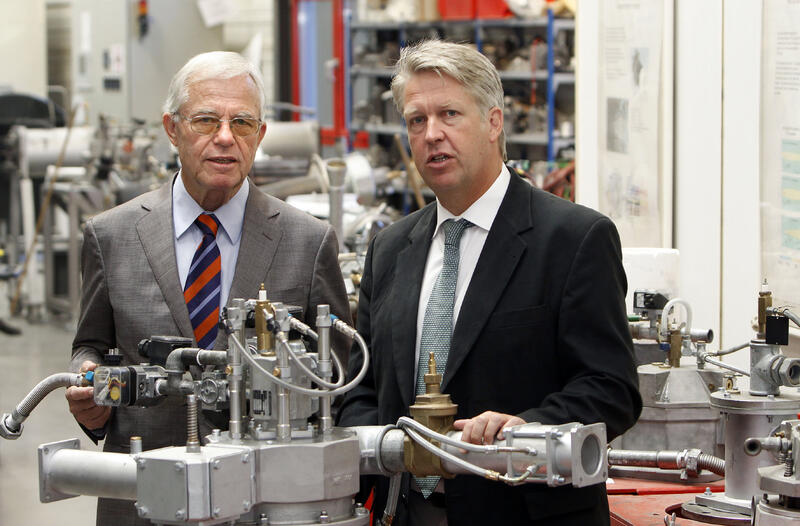Environmental relief by the small-firm sector: Prize goes to “trendsetters in sustainability“
Osnabrück. The 2011 German Environmental Award of the Deutsche Bundesstiftung Umwelt (DBU) has been given to two prize-winners who have demonstrated the potential for environmental relief in the German small-firm sector: the prize, worth altogether 500,000 euros, is shared by the associate, co-founder and board spokesman of memo AG (Greussenheim), Jürgen Schmidt (48), and the managing directors of the company WS Wärmeprozesstechnik (Renningen), Dr Joachim Alfred Wünning (81) and Dr Joachim Georg Wünning (48). Schmidt is receiving the award for the way his climate-neutral mail order company contributes to sustainable consumption in the office, school, home and leisure time with its ecological products. The Wünning father-and-son team is being presented with the prize for their efforts in making possible a more efficient use of energy and considerable reductions of emissions in energy-intensive key technologies, and for setting international standards in innovative environmental technology. German President Christian Wulff will present the prizes in Stuttgart on 30 October.

© memo AG/DBU
At memo, the environment, social concerns and economic aspects go hand in hand
DBU Secretary General Dr. Fritz Brickwedde praised the prizewinner Schmidt as a “trendsetter in sustainability.” He said Schmidt took business decisions on the basis of “ecological and ethical conviction and ambitious economic goals.” At memo AG, the environment, social concerns and economic aspects went hand in hand, he said. Brickwedde: “Schmidt has built up an exemplary business that greatly enhances the environmental compatibility of everyday products and the protection of resources.”
Product range ecological, affordable and fair
He said that by offering good value for money and attractive products, memo made sustainability “practical for everyday needs and appealing to the mass market.” Brickwedde noted that the range of products on offer was chosen so as to be ecological, affordable and fair, and that detailed and informative texts about the products made it easier for customers to decide in favour of articles that were ecologically and socially beyond reproach. He went on to say that memo AG, as a commercial enterprise whose company building and vehicle fleet were also conceived and put together according to principles of sustainability, “is an important interface between manufacturers, suppliers and customers and thus makes an important contribution to improving sustainability in production and to future-oriented consumer decisions in everyday life,” Brickwedde said.

© memo AG
Saving energy and emissions reduction "Topic Nr. 1" worldwide
Turning to the other prizewinners, the Wünnings, Brickwedde said they had greatly contributed “to bringing about a more efficient use of energy and a considerable reduction in emissions during high-temperature processes, such as in the production or steel and glass and in the chemical industry, and to making Germany a global market leader in this sector.” He pointed out that this was all the more important because the rapid global increase in energy consumption, together with a rise in emissions of environmentally damaging pollutants, had made saving energy and emissions reduction the “No. 1 topic” worldwide.
Brickwedde: FLOX technology "has set new standards worldwide"
Brickwedde said that improving energy use in energy-intensive branches of industry while guaranteeing that product quality remained the same or improved was a challenge for the future, one that the Wünnings had taken up successfully and responsibly. He said the FLOX technology they had developed was greatly superior, both ecologically and economically, to previously established end-of-pipe waste gas cleaning processes. He added that the fact that it had been so quickly developed and successfully put on the market underlined the practical relevance of the procedure, which uses a special burner technology to save 20 to 50 percent of energy compared with conventional procedures, thus noticeably reducing the amount of nitrogen oxides that would otherwise be produced. Nitrogen oxides can irritate and damage lungs and are also a factor in acid rain and the formation of smog and ozone. Brickwedde stated that the procedure not only greatly eased the burden on the environment, but “set new standards worldwide”: “In short, these are ‘seven-league’ boots for environmental and climate protection.”

© DBU/Karin Rebstock